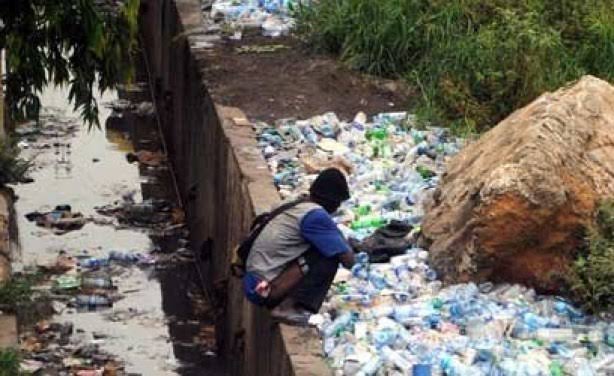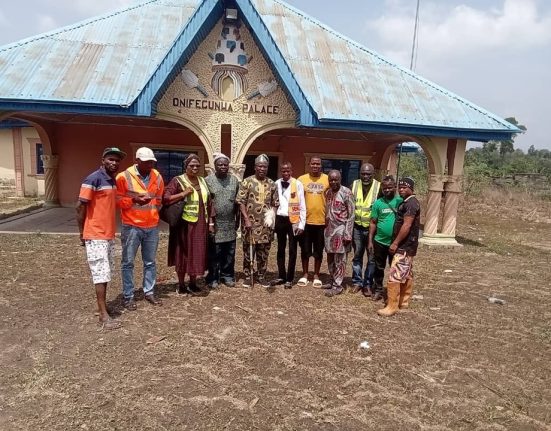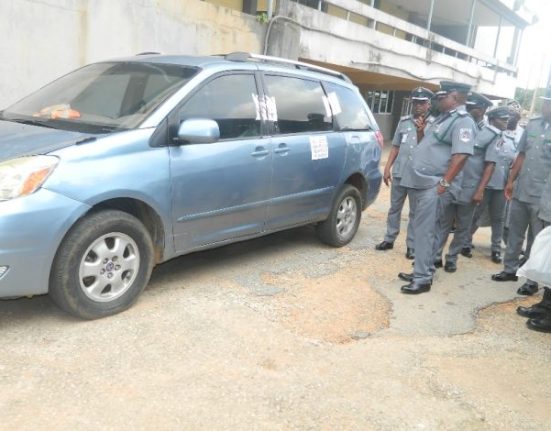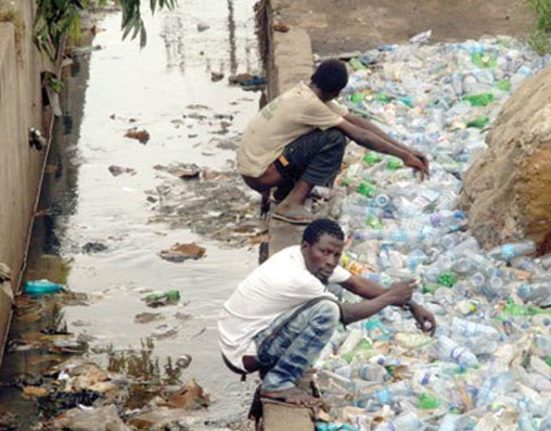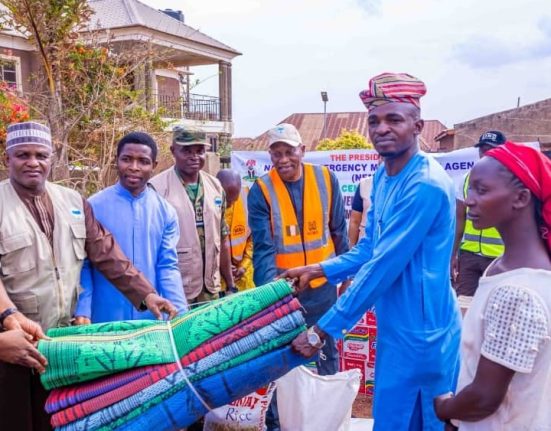The lingering threat of disease outbreak hangs over Owena Ijesa, a boundary town in Osun State, as open defecation, contaminated water, and widespread refuse dumping continue to plague the community months after a deadly cholera outbreak claimed lives and exposed the scale of infrastructural neglect in the area.
The town recently, signs of environmental decay were visible at every turn. From the heavily polluted Owena River to heaps of refuse dotting nearly every street, Owena presents a portrait of a community left to battle the consequences of state failure on its own. Residents say the situation has worsened in recent years, culminating in the cholera outbreak of late 2023 that claimed several lives and pushed the community to the edge of despair.
Among the victims of that epidemic was 28-year-old Yakubu Saheed, a resident of the Kwara area of Owena. His mother, Awawu Saheed, a frail widow battling partial stroke, tearfully recounted how her son died shortly after returning from the local maternity centre where he had sought treatment. “He just left the clinic and collapsed on his way home,” she told reporters, struggling to hold back tears. “Since then, I have been alone and sick.”
According to figures obtained from the only public healthcare facility in the town, 19 people were treated for cholera during the outbreak, with one confirmed fatality. However, community leaders say the actual death toll may be much higher, as several cases were treated in private hospitals within Owena and neighbouring Ondo State. Tajudeen Lawal, the spokesperson for the Olowena of Owena, revealed that unofficial figures suggest at least 11 people lost their lives during the epidemic, including several residents of northern origin who lived in high-density, underserved areas like Sabo and Kwara.
A tour through Owena reveals a grim reality: the town is overrun with refuse dumps that have gradually become both toilet grounds and disease incubators. From Oke Arandun and Epantoro to the Owena Market and Afole Compound, every open space appears to serve as either a garbage heap or an open-air toilet. The stench is overwhelming, and many locals, according to Lawal, have grown desensitized to the foul air, having lived for years in such unhygienic conditions.
The Owena River, a primary source of water for residents, flows behind the town’s only primary healthcare centre and serves multiple roles: a washing bay, water source, and toilet. Residents are seen washing clothes and fetching water from the same river where human waste and refuse are regularly dumped. The lack of modern sanitation is not only shocking but has also turned every rainstorm into a public health hazard.
The market, known for drawing traders from Osun, Oyo, Lagos, Ekiti, and Ondo states, is not spared. it was found in a deplorable state. Makeshift stalls sat amid refuse, while abattoirs operated dangerously close to dumpsites swarming with flies that freely moved between decaying waste and fresh meat for sale. Toilets are non-existent within the market, and a proposed shopping complex project initiated years ago remains abandoned.
Children learning in the community face a no less distressing situation. The Surajudeen Primary School, located beside what used to be Owena’s largest dumpsite, remains under threat of another refuse surge. Faeces-filled waste, plastic containers, and nylon materials compete for space just outside the school’s classrooms. Some of these classrooms have been abandoned, reportedly due to the daily presence of human waste within them. Locals even claim the spaces are occasionally used for illicit activities at night.
Water scarcity compounds the town’s woes. In areas like Epantoro, residents trek long distances—up to 10 kilometres—to access any form of water, most of which is untreated and unsafe. The only solar-powered borehole in the area has broken down, leaving over 1,500 households to rely on the polluted Owena River. Women and children are most affected, bearing the burden of fetching water from distant and often contaminated sources.
Residents like Seun Olomola and Risikat Gbadamonsi decry the lack of government support, blaming the town’s topography and years of abandonment. “Our people are drinking from the river, using it to cook and bathe. It is a silent killer,” Gbadamonsi lamented.
Despite being situated along a major expressway and within close range of major cities like Akure and Ilesa, Owena remains disconnected from basic public infrastructure. Roads are untarred, healthcare is overstretched, and public education suffers under the weight of filth and government neglect. The community has only one public secondary school and a single government-owned maternity centre, which lacks basic amenities such as electricity, a functioning toilet, and staff accommodation.
Chief Oyejide Fawole, President of the Owena Ijesa Progressive Union, expressed disappointment at decades of government neglect. “All we have in this town, our fathers built. The police station, the schools—none came from the government. We are many here, but they group us under communities with less population. We’re only remembered during elections.”
Out of an estimated 4,000 buildings in the town, barely a quarter have modern toilet facilities. In areas like Kwara, Sago, and Oke Arandun, many homes simply have no toilets at all. A visit to the maternity centre further revealed the challenges: an unfenced building with outdated toilets, no regular water supply, and just four staff handling deliveries for dozens of women weekly. Staff fetch water in buckets and sleep in cramped rooms inside the facility.
The Ministry of Health, through its state epidemiologist, Dr Omolola Adeagbo, confirmed the 2023 cholera outbreak and disclosed that the government had conducted water and sanitation assessments and embarked on public sensitisation to curb open defecation. She also acknowledged that many houses either lacked toilets or residents simply refused to use them, further compounding the health risks.
Efforts by the government during the outbreak, including water sanitation programs and house-to-house awareness campaigns, were commendable, but residents insist more structural intervention is needed to prevent a recurrence. “We need laws to compel people to build and use toilets. We need sanitation enforcement, clean water, and a functioning healthcare system,” Lawal pleaded.
The Commissioner for Environment, Mayowa Adejoorin, assured that the state government would move swiftly to clear the dumpsites and enforce sanitation regulations, promising collaboration with local authorities to deploy more sanitary inspectors to the area.
Still, for the people of Owena, these promises will remain hollow unless action follows. In a community so close to urban centres yet stranded in squalor, the question remains: how many more lives must be lost before Owena receives the attention it deserves?

